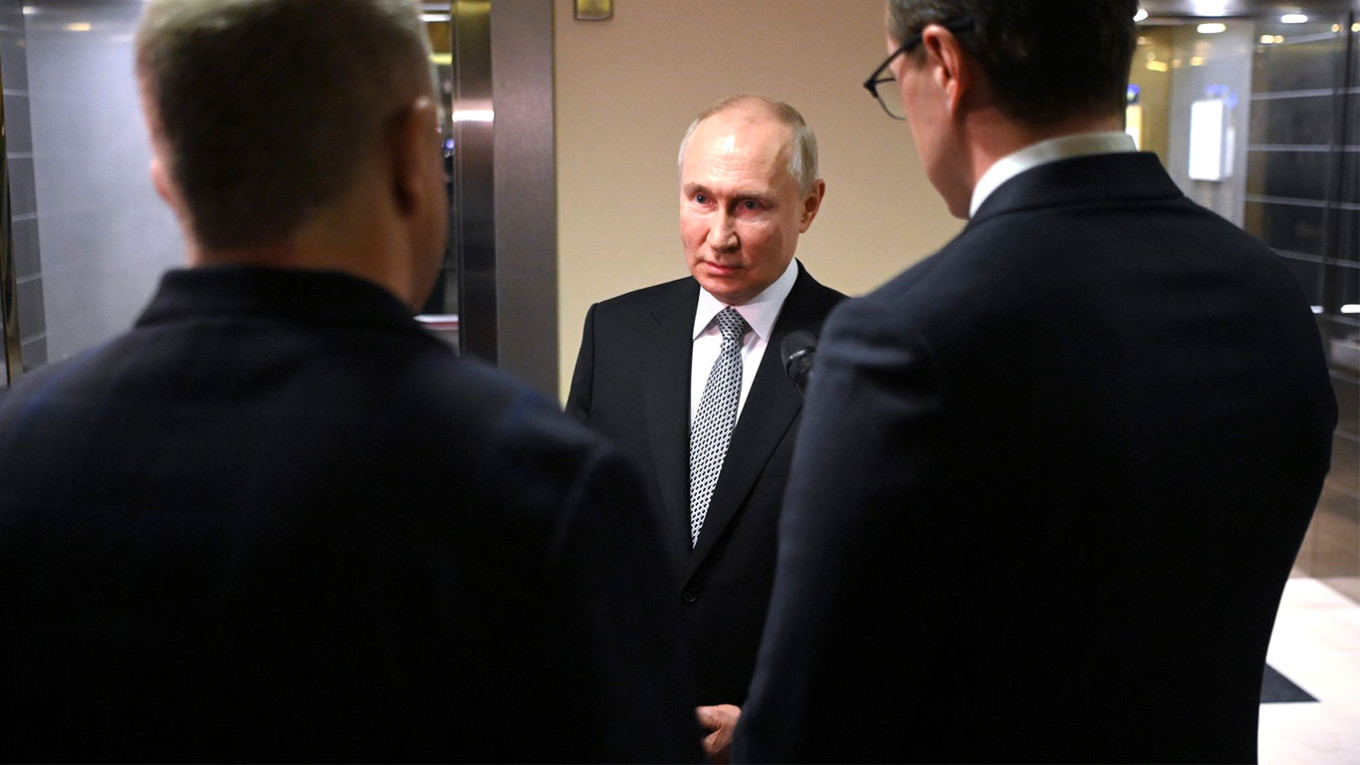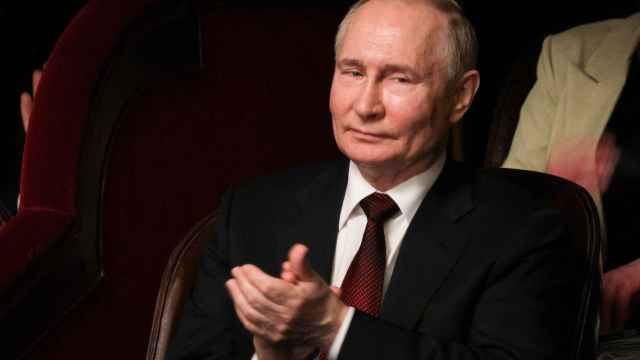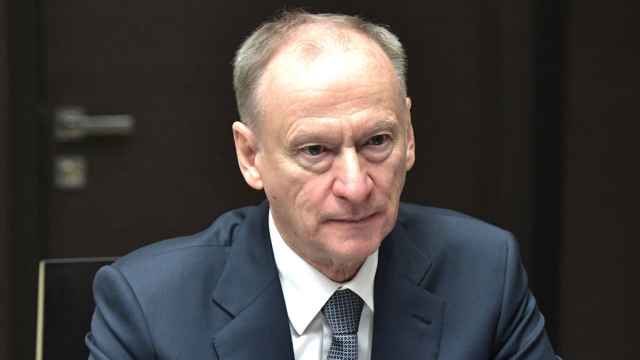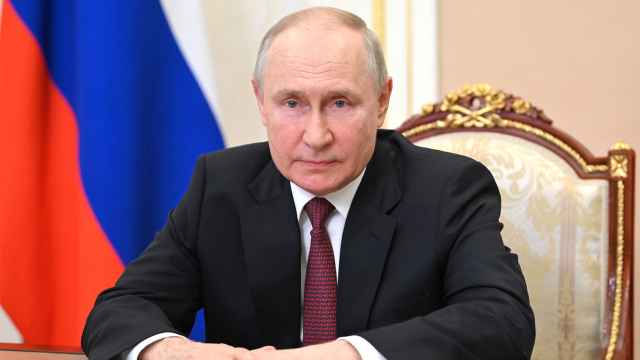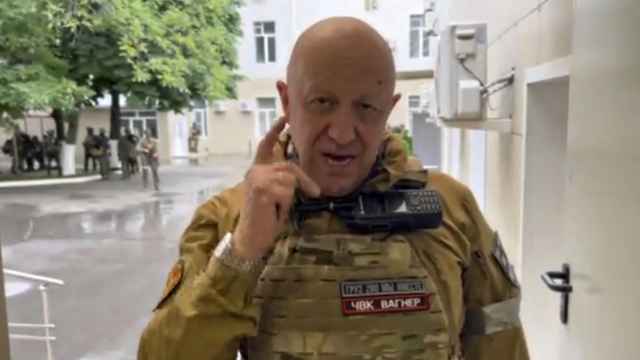Russian President Vladimir Putin offered Wagner mercenaries a chance to continue serving after their failed mutiny, he said in comments to the Kommersant business daily late Thursday.
“Nothing would have changed for them,” Putin said, recalling a June 29 Kremlin meeting with 35 Wagner officers and founder Yevgeny Prigozhin just five days after the aborted revolt.
“All of them could have gathered in one place and continued to serve,” Putin told Kommersant.
“They would have been led by the same person who was their real commander all this time,” he added.
Kommersant identified the Wagner commander by his call sign “Sedoy” (“Gray-haired”). Previous reports identified Sedoy as Andrei Troshev, a former police colonel and veteran of the wars in Afghanistan and Chechnya.
Putin did not clarify whether his offer to Wagner entailed staying in Russia or going into exile in neighboring Belarus, as part of an original deal to end the June 23-24 crisis.
Belarusian President Alexander Lukashenko, who had mediated talks between Putin and Prigozhin, claimed earlier this week that Wagner fighters would be deployed in his country to “train” the Belarusian military.
Prigozhin turned down the offer, Putin told Kommersant, suggesting, however, that some Wagner commanders themselves were prepared to accept.
“Many people nodded when I said that. But Prigozhin, who was sitting in front and didn’t see it, said after listening: ‘No, the boys don’t agree with this decision’,” Putin recalled.
Putin noted that his offer for Wagner to continue serving was one of several “possible options for their further services, including in combat” floated at the Kremlin talks, which lasted three hours.
He also acknowledged Wagner’s legal limbo, telling Kommersant: “There is no law on private military organizations. It just doesn’t exist.”
“There’s such a group, but legally it doesn’t exist [and] it’s a separate issue related to legalization that should be discussed in the State Duma and the government,” the Russian leader said.
The Kremlin said Friday that Russia could grant legal status to private military groups.
"This issue will be considered," Kremlin spokesman Dmitry Peskov told reporters, describing a move that would give Russian authorities greater direct control over ostensibly private fighters.
After years of denying any links between the Russian state and the mercenary group, which is accused of brutality and destabilization in conflict zones around the world, Putin said in late June that Wagner received roughly $1 billion in funding from state coffers over the past year.
Private military companies like Wagner are illegal under Russian law.
AFP contributed reporting.
A Message from The Moscow Times:
Dear readers,
We are facing unprecedented challenges. Russia's Prosecutor General's Office has designated The Moscow Times as an "undesirable" organization, criminalizing our work and putting our staff at risk of prosecution. This follows our earlier unjust labeling as a "foreign agent."
These actions are direct attempts to silence independent journalism in Russia. The authorities claim our work "discredits the decisions of the Russian leadership." We see things differently: we strive to provide accurate, unbiased reporting on Russia.
We, the journalists of The Moscow Times, refuse to be silenced. But to continue our work, we need your help.
Your support, no matter how small, makes a world of difference. If you can, please support us monthly starting from just $2. It's quick to set up, and every contribution makes a significant impact.
By supporting The Moscow Times, you're defending open, independent journalism in the face of repression. Thank you for standing with us.
Remind me later.


